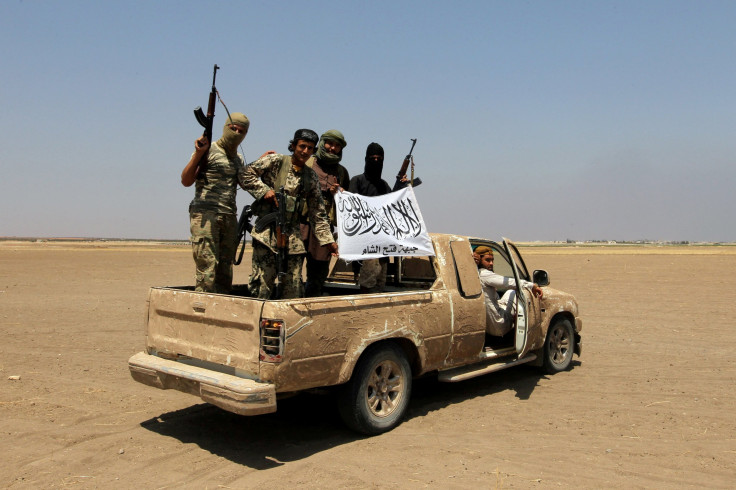Who Is Fighting In Syria? Rebel Group Calls Deal 'Waste Of Blood And Revolution' Against Assad

Islamist rebel group Jabhat Fatah al-Sham announced Friday it did not recognize the ceasefire established between the Syrian army and opposition forces, local media reported, raising further concern about the future of an already unsteady ceasefire in Syria's conflict.
Jabhat Fatah al-Sham, formerly known as Al Qaeda's Nusra Front, issued a statement claiming it had not been involved in negotiations regarding a deal with the Syrian government or other international powers, such as Russia, Turkey and Iran that helped draft the ceasefire. In an official statement picked up by numerous Arabic-language outlets and attributed to an official spokesperson, the group listed three points in regards to its position.
"We did not negotiate a ceasefire with anyone, the solution is to topple the regime through militarily," the group wrote in a statement that referred to a political solution as "a waste of blood and revolution."
عاجل
— موسى العمر (@MousaAlomar) December 30, 2016
جبهة فتح الشام :
١-لم نفوض أحدا باتفاقية وقف إطلاق النار
٢-الحل بإسقاط النظام عسكريا
٣-أي حل سياسي يثبت أركان النظام هدر للدماء وللثورة
Syrian rebels initially reported that the influential group had been included in the ceasefire, despite the Syrian military saying otherwise. Jabhat Fatah al-Sham is believed to be one of the most powerful rebel groups involved in the fight and was a was a former ally of the Islamic State group, also known as ISIS. The jihadist group has since attempted to brand itself as a moderate alternative to ISIS and sought support from Gulf states such as Qatar in the militants' campaign to overthrow the government and establish Islamic rule. The group has been labeled a terrorist organization by the U.S., which supports other rebel organizations.
Washington has attempted to supply CIA-vetted rebel groups with weapons, mostly to fight ISIS, but more radical organizations gained the upper hand among opposition ranks and Jabhat Fatah al-Sham was one of the more hardline groups to gets its hands on U.S. weaponry. Insurgent groups made territorial gains against the Syrian government earlier on in the war, but a combination of Russian intervention, a decline in Western support and infighting turned the tides in Assad's favor. Earlier this month, the Syrian army, supported by Russian airstrikes and Iran-backed militias, successfully retook Aleppo, Syria's former commercial capital and, later, an opposition stronghold.
The ceasefire, which coincides with peace talks between Russia, Iran and Turkey, who sponsors the opposition, represents the latest diplomatic effort to end the more than five-year conflict in Syria that began when anti-government protests transformed into an armed uprising against Syrian President Bashar Assad in 2011. Both sides of the conflict accuse one another of massive human rights violations and deliberately targeting civilians in a war that has killed over 400,000 Syrians and displaced millions more.
© Copyright IBTimes 2024. All rights reserved.






















